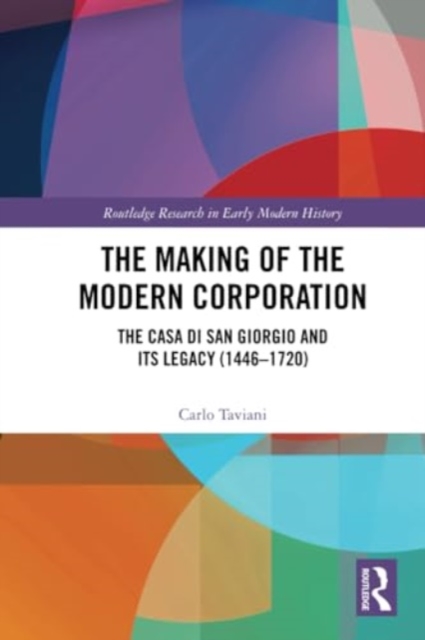
The Making of the Modern Corporation : The Casa di San Giorgio and its Legacy (1446-1720) Paperback / softback
by Carlo Taviani
Part of the Routledge Research in Early Modern History series
Paperback / softback
Description
This book traces the origins of a financial institution, the modern corporation, in Genoa and reconstructs its diffusion in England, the Netherlands, and France.
At its inception, the Casa di San Giorgio (1407–1805) was entrusted with managing the public debt in Genoa.
Over time, it took on powers we now ascribe to banks and states, accruing financial characteristics and fiscal, political, and territorial powers.
As one of the earliest central banks, it ruled territories and local populations for almost a century.
It controlled strategic Genoese possessions near and far, including the island of Corsica, the city of Famagusta (in Cyprus), and trading posts in Crimea, the Black Sea, the Lunigiana in northern Tuscany, and various towns in Liguria.
In the early sixteenth century, in his Florentine Histories (Book VIII, Chapter 29), Niccolò Machiavelli was the first to analyze the relationship between the Casa di San Giorgio’s financial and territorial powers, declaring its possession of territories as the basis of its ascendancy.
Later, the founders of some of the earliest corporations, including the Dutch East India Company (1602), the Bank of England (1694), and John Law’s Mississippi Company (1720) in France, referenced the model of the Casa di San Giorgio.
Information
-
Out of stock
- Format:Paperback / softback
- Pages:264 pages, 6 Tables, black and white; 1 Line drawings, black and white; 3 Halftones, black and white
- Publisher:Taylor & Francis Ltd
- Publication Date:29/01/2024
- Category:
- ISBN:9781032198934
Other Formats
- PDF from £35.99
- EPUB from £35.99
- Hardback from £135.00
Information
-
Out of stock
- Format:Paperback / softback
- Pages:264 pages, 6 Tables, black and white; 1 Line drawings, black and white; 3 Halftones, black and white
- Publisher:Taylor & Francis Ltd
- Publication Date:29/01/2024
- Category:
- ISBN:9781032198934










